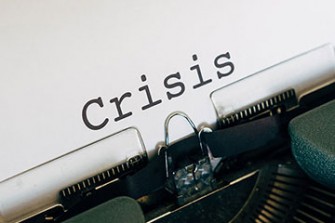A fact that has not escaped the (then) Governor of the Bank of England, Mark Carney who in December 2019 noted that “changes in climate policies, new technologies and growing physical risks will prompt reassessments of the values of virtually every financial asset.” More recently, the New Zealand Government has announced mandatory climate-related financial disclosures for certain New Zealand entities.
“What gets measured, gets managed”
For organisations to manage risks, they must first be aware of them. Mandating a level of comparable reporting through the introduction of climate risk reporting will help drive that awareness.
Reporting risks leads to a better understanding of the potential financial impacts and hopefully more informed, and greener, investment decisions as a result. The Ministry for the Environment explain it as follows:
The goal of mandatory climate-related financial disclosures is to:
· promote greater transparency and more accurate pricing signals in the market
· incentivise low-emissions investment
· create a level-playing field for businesses already considering climate change in their longer-term risks.
This would help New Zealand meet its international obligations and achieve its target of zero carbon by 2050. It would also help to address climate change risks outlined in the National Climate Change Risk Assessment by making our financial system more resilient.
As yet, there is no standardised climate reporting, but the expectation is that the climate risk reporting would need to consider risks such as:
· Physical climate change risks– including extreme floods, droughts, forest fires and rising sea levels
· Policy and legal risks from carbon pricing, regulation and potential exposure to litigation
· Transition risks such as stranded assets from technological change, increased cost of raw materials, changing consumer behaviour, reputation risks and the corresponding impact on social licence to operate.
What has been decided in Aotearoa?
The Government plans to make climate-related financial disclosures mandatory for certain organisations. This policy would take effect via an amendment to the Financial Markets Conduct Act (2013) which will be subject to approval by Parliament.
The requirement is proposed to apply to:
· All registered banks, credit unions, and building societies with total assets of more than $1 billion.
· All managers of registered investment schemes with greater than $1 billion in total assets under management.
· All licensed insurers with greater than $1 billion in total assets under management or annual premium income greater than $250 million.
· All equity and debt issuers listed on the NZX.
· Crown financial institutions with greater than $1 billion in total assets under management.
Reporting would be against a standard to be developed and issued by the External Reporting Board (XRB). The expectation is that this New Zealand reporting standard would be developed in line with the recommendations of the Task Force on Climate-related Financial Disclosures (TCFD). These recommendations are recognised as international best-practice for climate related financial disclosures. However, the XRB has the challenge of drafting requirements that are New Zealand appropriate and achieve a balance between the cost benefit trade-offs.
Likely effective date?
Assuming Parliamentary approval of the legislation amendment, and the creation and issuance of a suitable reporting standard, 2023 is likely to be the earliest date for these disclosures to be mandatorily required.
It is worth noting though that some New Zealand entities are already voluntarily reporting climate change risk information in response to the growing importance of this risk to their stakeholders. Additionally some other entities may wish to voluntarily choose to disclose such risks to help assure their stakeholders of the sustainability of their strategy, such as large charities.
Challenges
There are a few. Here are some of the main ones that spring to mind:
· Keeping this important issue on the Parliamentary agenda - particularly amidst the social and economic disruption caused by COVID – 19
· The XRB drafting a suitably pragmatic, on point standard appropriate for New Zealand that aligns with the best of international thinking but is not over-engineered, overly complex or a costly compliance burden.
· Gaining acceptance and buy in from reporting preparers will be key. To be frank however, if there are significant entity boards not already starting to seriously consider the risks of climate change on their organisation, their strategy and business models, and the broader economy, then I fear for them.
· Comparability and usefulness of information for investment decision making. Ultimately, the real value of reporting comes when its actively used and applied.
The opportunity
It is a truism, but at the heart of challenge lies opportunity. Climate risk reporting has the potential to lead to more sustainable practices and improved business models in Aotearoa New Zealand. Our opportunity is in capitalising, rather than resisting, climate risk reporting and harnessing our natural and unique attributes.
The opportunity to truly integrate a Te Ao Māori world view and adopt kaitiakitanga / long-term stewardship philosophy of the whenua into our businesses, our economy, and our financial systems, cannot and should not be underestimated.
As an island state with abundant natural resources, such as clean energy, we can cope better with climate change than many other nations. We can also build on our existing reputation and brand internationally and make New Zealand products and services even more desirable, and therefore valuable, in global markets.
We are also a nation of highly capable people backed by innovative organisations. We can balance creativity with pragmatism and be nimble and quick to seize opportunities. Aotearoa New Zealand can lead the way and be a role model for the world by demonstrating what is possible and encourage others to make positive change.
Parting thought
Clearly, the climate emergency presents potentially significant risk to organisations and communities. But, as I’ve discussed, it also presents some interesting and strategic opportunities. The trick will be to use awareness (to paraphrase Eckhart Tolle) as an “agent for change” so first and foremost we must be aware of the climate risks we face. Climate risk reporting will be vital to that.
We only have one planet, and the clock, (or is it time bomb?) is ticking...
Image by Patrick Hendy @worldsbetweenlines








